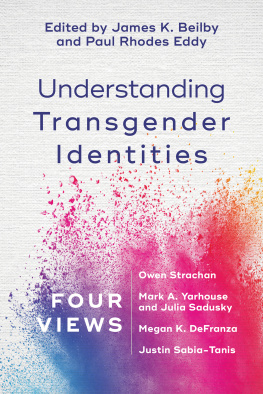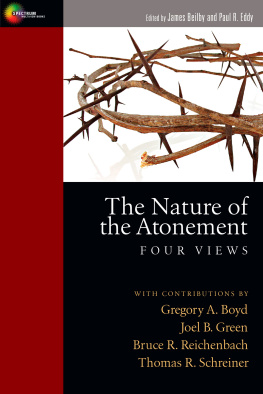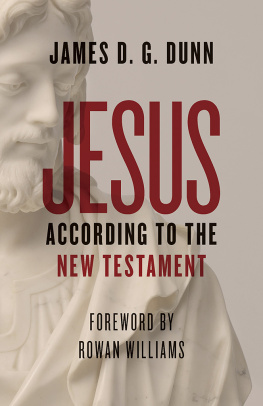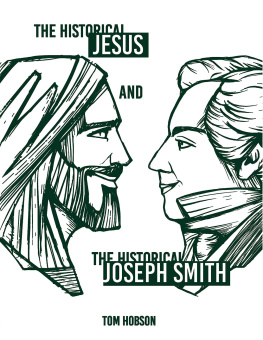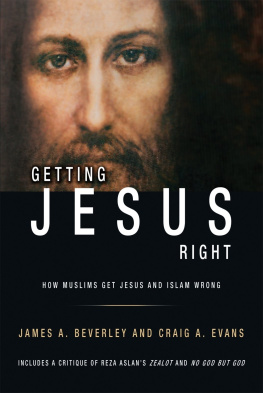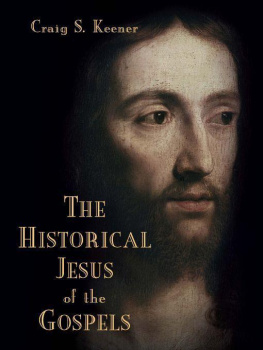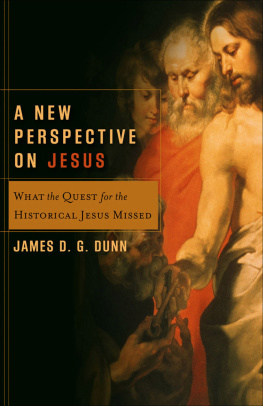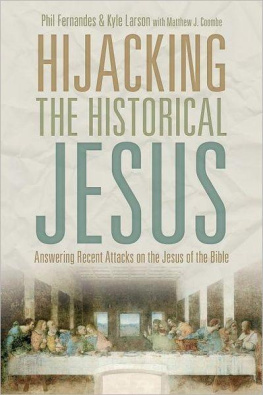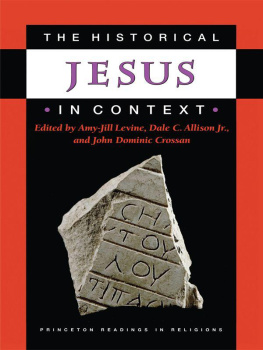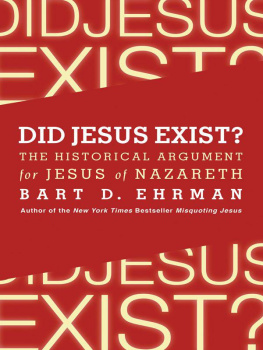James K. Beilby - The Historical Jesus: Five Views
Here you can read online James K. Beilby - The Historical Jesus: Five Views full text of the book (entire story) in english for free. Download pdf and epub, get meaning, cover and reviews about this ebook. year: 2009, publisher: InterVarsity Press / IVP Academic, genre: Religion. Description of the work, (preface) as well as reviews are available. Best literature library LitArk.com created for fans of good reading and offers a wide selection of genres:
Romance novel
Science fiction
Adventure
Detective
Science
History
Home and family
Prose
Art
Politics
Computer
Non-fiction
Religion
Business
Children
Humor
Choose a favorite category and find really read worthwhile books. Enjoy immersion in the world of imagination, feel the emotions of the characters or learn something new for yourself, make an fascinating discovery.

- Book:The Historical Jesus: Five Views
- Author:
- Publisher:InterVarsity Press / IVP Academic
- Genre:
- Year:2009
- Rating:5 / 5
- Favourites:Add to favourites
- Your mark:
- 100
- 1
- 2
- 3
- 4
- 5
The Historical Jesus: Five Views: summary, description and annotation
We offer to read an annotation, description, summary or preface (depends on what the author of the book "The Historical Jesus: Five Views" wrote himself). If you haven't found the necessary information about the book — write in the comments, we will try to find it.
The Historical Jesus: Five Views — read online for free the complete book (whole text) full work
Below is the text of the book, divided by pages. System saving the place of the last page read, allows you to conveniently read the book "The Historical Jesus: Five Views" online for free, without having to search again every time where you left off. Put a bookmark, and you can go to the page where you finished reading at any time.
Font size:
Interval:
Bookmark:
Darrell L. Bock
A s Price himself notes, his position is the most controversial of the options presented about Jesus. If his position is correct, then an incredible amount of effort has been expended throughout the centuries to understand a figure who should be relegated to the realm of myth alone. Price seemingly explains his view by saying if there were no Jesus, human desires are such that he must have been created to meet those needs. In fact, at one point in the essay, Price posits that Jesus might have existed, but not in a way that left any real deposit of his memory, nor did the early church really care to remember him as he truly might have been. This lack of interest Price argues for is unlike most of historys greats, but for him Jesus exalted story is like that of several other expressions of ancient religious hope. The key question is where the starting point for any such move to exalt Jesus resides: in historical roots or in the creative desire of humans to reach for God.
I want to first focus on the framework for this discussion because Price begins by arguing that the historical principle of analogy alone is enough to disqualify what is presented about Jesus. Prices definition of reality on which this idea is based reflects a very circumscribed, selectively Western Enlightenment mindset. Many people do believe there is a Creator who acts in the world. Granted, being able to show it is a debated point, but the possible existence and activity of God cannot be ruled out by a kind of fiat. When Price speaks of contemporary assessment standards, he excludes many of his counterparts views because he rules out that God or any other transcendent spirits, for that matter, exist in our world.
More importantly, this claim actually ignores many features we can consider historically, such as a figures impact on his contemporaries or their testimonies that this impact is not a matter of myth. First-century Christian documents clearly claim this distinction, which means they are aware of the difference and reject a tie to myth for Jesus. This puts Jesus and his historical reality on the table. In addition, Price interestingly at times appeals to the testimony of revelations of a risen Lord who never seemingly existed. What was the first step to that explanation? Where did the impetus for a risen Lord come from? Did it come from an ex nihilo origin, from a very modest great-healer existence or something more profound? A modest origin seems very unlikely given the impact and descriptions we have of Jesus, even in nonbiblical sources. Price dismisses Josephus far too easily, but even more he ignores the fact that Jesus Jewish opponents never argue that he did not exist. There seems to be an extant figure for the disputants on both sides of the Jewish-Christian debate. Thus, whether we look to Justin Martyrs Dialogue with Trypho , Josephus or what Tacitus and Suetonius describe in terms of the origins of the church, the idea that Jesus did not exist at all is historically quite unlikely.
From such general principles, Price moves to a discussion of orality. I agree with his observation that there is a range for orality in the ancient world: from quite disciplined to quite loose. This is what Dunns essay covers as well. What we can see from our sources is that the Gospel tradition has an element of both fixity and flexibility. That direct evidence does not limit us to the all or next-to-nothing options that Price provides as our choices. Proceeding one saying at a time, as Price contends we should, is something many Jesus scholars have done, with most having confidence that many sayings do go back to Jesus even on standards that require corroboration. Even the Jesus Seminar saw around 20 percent of the Jesus material as going back to Jesus, using a very skeptical employment of such principles.
Prices handling of the criteria of authenticity, such as the criterion of dissimilarity, has the same heads I win; tails you lose tone that much of his essay carries. Analogy plus dissimilarity is what is commended, but the search for other criteria was dismissed. No, what made scholars look for principles to go with dissimilarity was the historical observation that great figures do interact with and reflect their cultures even if they do so in creative ways. (An exceptional Jesus, or the exceptional in any other historical figure, is not always the only facet to such a figure.) Such a culturally displaced figure makes no sense (even as a creation!). This criterion as the key does too much. It detaches Jesus far too much from his context.
The main part of Prices essay is the defense of the Jesus-as-myth model. Price makes several claims in this section: (1) There is no miracle-working Jesus in the secular sources. Now to make this claim, he must dismiss the evidence that Josephus gives as well as the Jewish tradition, which marked Jesus as a sorcererevidence he does not Obviously we disagree on Josephus, but the Jewish Antiquities 18 text does not stand alone, nor does he note how there is an allusion to the Christ in Jewish Antiquities 20.200, which suggests that Josephus had discussed the Christ earlier in his work. This points to the likelihood that Jewish Antiquities 18.63-64 was a part of Josephuss material. In sum, Prices claim that there is no miraculous Jesus in the sources does not reflect claims that Jesus did unusual works (Josephus) or that he was a sorcerer (elements of Jewish tradition).
(2) Price argues that the New Testament Epistles do not evidence a historical Jesus. Where is the proof of this claim? Look at what it ignores. The Last Supper tradition (called a possible interpolation by Price, but Paul did not write this tradition) is assumed in practically all early Christian communities, not just the ones that originated due to Pauls preaching (see the four Gospels, Jude and even the Didache ). It also shows up in the practice of memory in the church . What do we say about the resurrection tradition Paul defends in 1 Corinthians 15? This tradition gives little evidence of being made up since it mentions appearances to Cephas (Peter), and yet there is no detailed, created story of such an appearance. This is an amazing fact if the church was indeed making things up as easily as Price suggests. The tradition of Romans 1:2-4 assumes the death and resurrection of an earthly Jesus. Where do we get Jesus according to Price? We must run to his frequently invoked risen-Lord revelations or appeal to midrash for its roots. We must even posit Jesus as a postmortem name! I repeat, then, why is there not a challenge from the Jews that Jesus never existed? When we can dismiss these portraits, we are playing with evidence, playing heads I win; tails you lose. Even more incredulous is Prices view that James, the brother of the Lord, is not evidence of Jesus existence. Would not people in the region have known of Jamess origin and challenge such a claim if it had been fabricated? Price argues for Jamess appellation being shared by a missionary brotherhood. This is very unlikely given that such an association could then pertain to hundreds of disciples. Paul also cites Jesus in 1 Corinthians 7. And Jesus teaching runs through units of Romans 1216. Jesus is far more present in the Epistles than Price suggests.
(3) Price maintains that a key appeal for the Jesus story is rooted in the parallels that exist with other religions on important themes, especially dying-and-rising gods. This approach has been common since the rise of the history of religions school in the late nineteenth and early twentieth centuries. There is no core experience of a resurrected Jesus, just the expression of hope rooted in a human desire to experience God. However, is this Jesus who challenges the world about sin and calls for suffering and rejection by the world a god of human fabrication made to make us feel good? Is Jesus really just like the Attis analogy or some other type of ancient religious conglomeration, rising from the ashes like a phoenix from hero myths? A closer look at such parallels shows they are not really parallel. Attis in the most popular form has a very limited resurrection. His body will not be corrupted (i.e., not decay), his hair grows, and he can move one finger (Arnobius Against the Nations 5.7)! As Klauck, a scholar
Font size:
Interval:
Bookmark:
Similar books «The Historical Jesus: Five Views»
Look at similar books to The Historical Jesus: Five Views. We have selected literature similar in name and meaning in the hope of providing readers with more options to find new, interesting, not yet read works.
Discussion, reviews of the book The Historical Jesus: Five Views and just readers' own opinions. Leave your comments, write what you think about the work, its meaning or the main characters. Specify what exactly you liked and what you didn't like, and why you think so.

